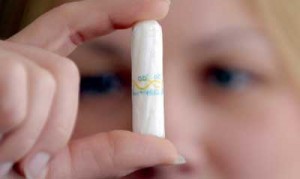Johnson & Johnson to Stop Using Harmful Chemical – Victory or Not?
As a mom (who was once a kid), I’m kind of rejoicing; as an American woman, I’m kind of ticked off.
Johnson & Johnson has promised to stop using harmful – possibly carcinogenic – ingredients in all their lines by 2015. Yay! That means that they’ve been paying attention to the threats from the Campaign for Safe Cosmetics and their allies. It means that J&J is waking up to the fact that American women really don’t want to slather themselves in toxic chemicals, nor do we want those chemicals anywhere near our kids. It almost feels like a victory.
But is it?
Johnson & Johnson has been carcinogen-free in countries all over the world for years. And according to their press release, they will still use chemicals that release formaldehyde "when no safe alternative will work .” But there must already be safer alternatives to these chemicals if Johnson & Johnson products are on the shelves in places with stricter rules like the Europen Union and Japan.
Their promises seem reassuring, though and this news make me want to support them. They are one of the few big companies actually changing policy and formulas because of consumer demand. A lot of that has to do with their huge line of baby products (moms are a very vocal group) and the problems they’ve had with public image in the wake of recalls on their pharmaceuticals – but it’s a step in the right direction that should be applauded.
What we really need to do is shake up the other cosmetic companies! Just because we aren’t the diaper and crayon set doesn’t mean we deserve toxic, carcinogenic, or hormone disrupting chemicals in our products: personal or beauty. L’Oreal (Maybelline, Garnier, Kiehl’s, The Body Shop, Softsheen-Carson), Procter & Gamble (CoverGirl, Pantene, Secret, Old Spice), Estee Lauder (Clinique, MAC, Prescriptives), Avon, and Unilever (Dove, Ponds, St. Ives, Axe) all need to be held to higher standards than the ones the FDA holds them to.
I urge you to check out Campaign for Safe Cosmetics’ Get Involved page. Sign a petition, send an email, make your own lip gloss – Do something healthy and pretty!


